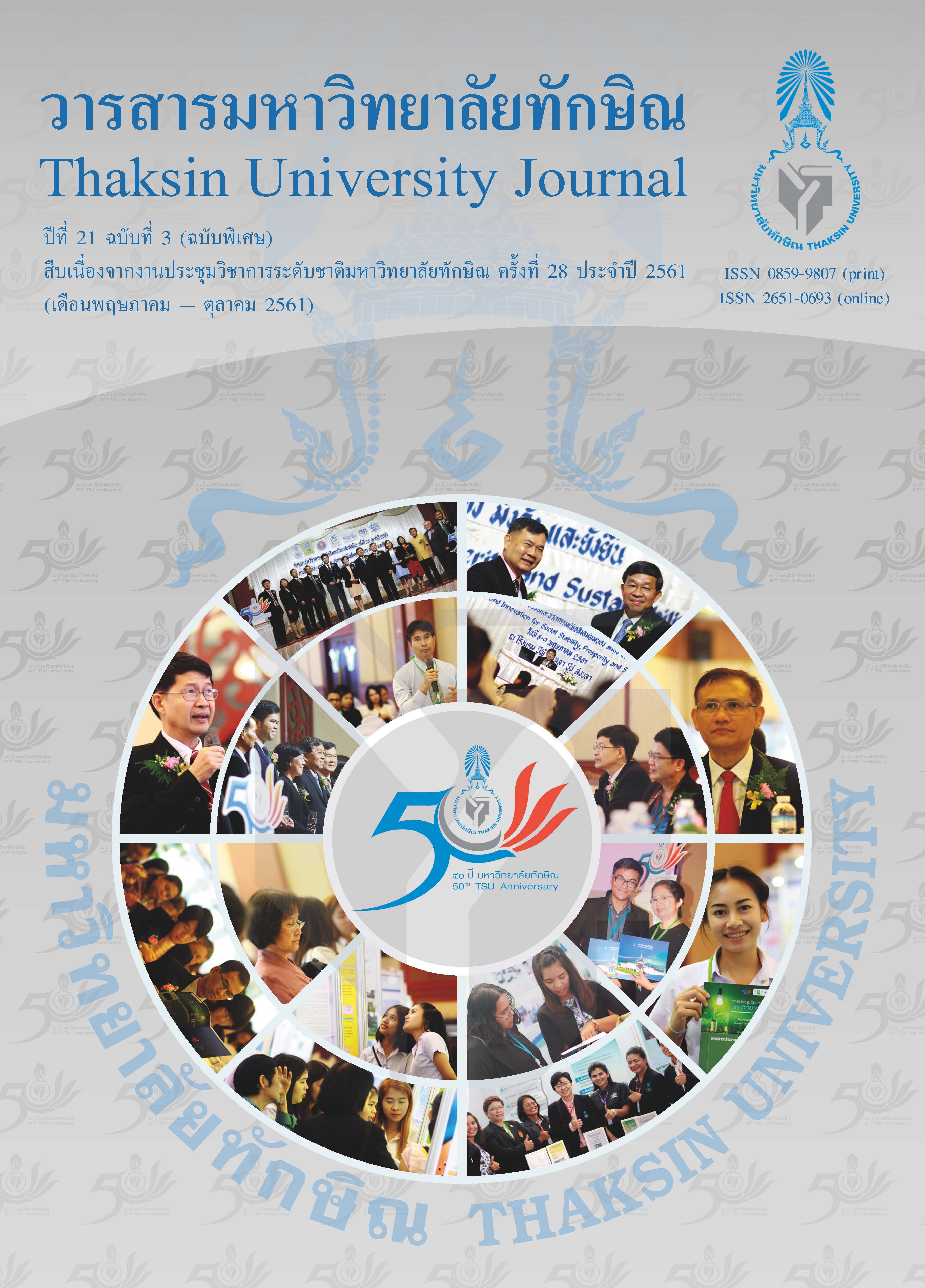Catalytic Activity of Ni/SiO2 Supported on Partial Hydrogenation of Biodiesel from Waste Cooking Oil
Main Article Content
Abstract
Partial hydrogenation can be used to improve biodiesel properties by transforming the polyunsaturated fatty acid methyl ester (FAME) to the saturated FAME. The aim of this research was to study the effect of catalytic performance of Ni supported on SiO2 (Ni/ SiO2) catalyst on the partial hydrogenation of polyunsaturated FAME. The effect of hydrogenation activity on cis-trans selectivity of the catalyst was also investigated. Biodiesel was synthesized by using waste cooking oil (WCO) as a feedstock via a transesterification with a microwave irradiation. Partial hydrogenation was performed with operating conditions of 100 °C and 4 bar hydrogen pressure. The Ni/SiO2 catalyst was prepared by incipient wetness impregnation. Biodiesel was characterized by gas chromatography (GC-FID) and Fourier transform infrared absorption spectroscopy (FTIR). The catalyst was determined by X-ray diffraction (XRD) and CO pulse chemisorption. The results showed that the Ni/SiO2 catalyst enhance the formation of both cis-monounsaturated and trans-monounsaturated FAME. The catalytic activity was represented by turnover frequency (TOF) as exhibited by C18:2 conversions. The highest TOF (486 h-1) was exhibited at 1 h of hydrogenation, indicating that the abundance of Ni active sites. Nevertheless, TOF decreased within 4 h of reaction time (TOF; 203 h-1).
Article Details

This work is licensed under a Creative Commons Attribution-NonCommercial-NoDerivatives 4.0 International License.


